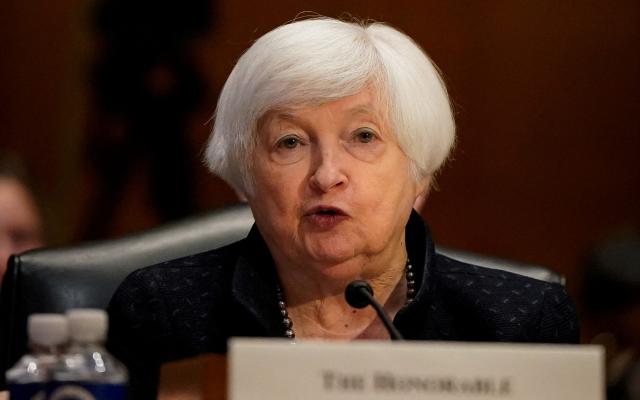In the ever-evolving landscape of global energy transition, the rise of green technologies promises a sustainable future. However, amidst this transition, concerns have emerged over China’s aggressive expansion in the green energy sector. U.S. Treasury Secretary Janet Yellen’s recent critique of China’s market dominance sheds light on the complexities of international trade, economic competition, and the imperative of fair practices in the pursuit of environmental sustainability. This article explores Yellen’s remarks, the implications of China’s green energy strategies, and the broader ramifications for global markets and environmental stewardship.
China’s Green Energy Ascendancy: As the world’s largest emitter of greenhouse gases, China’s pivot towards green energy has garnered international attention. Rapid industrialization and urbanization have fueled the country’s insatiable appetite for energy, prompting ambitious investments in solar energy, electric vehicles, and lithium-ion batteries. The sheer scale of China’s manufacturing capabilities has positioned it as a dominant force in the global green energy market, with profound implications for both domestic and international stakeholders.
Yellen’s Critique: Secretary Yellen’s critique of China’s green energy practices underscores the inherent challenges of global economic competition. By accusing China of engaging in unfair competition and distorting global pricing mechanisms, Yellen highlights the disruptive effects of China’s state-sponsored subsidies and production strategies. The reopening of the Suniva solar manufacturing facility serves as a poignant example of the repercussions of market oversaturation and foreign competition, compelling domestic policy interventions to revive struggling industries.
Implications for Global Markets: The tensions between the United States and China extend beyond bilateral trade disputes to encompass broader geopolitical rivalries and strategic competition. The European Union’s probe into Chinese subsidies for electric vehicles reflects growing concerns among international partners regarding the integrity of the global green energy market. Moreover, China’s filing of a WTO complaint against the U.S. signals escalating trade tensions and the potential for retaliatory measures, further complicating efforts to foster international cooperation on climate change mitigation.
Navigating the Path Forward: As the world grapples with the dual imperatives of economic development and environmental sustainability, navigating the path forward requires a delicate balance of cooperation and competition. Secretary Yellen’s upcoming visit to China presents an opportunity to address these concerns diplomatically and constructively. By engaging in dialogue with Chinese counterparts, the United States can advocate for a level playing field in the green energy sector, fostering fair competition and incentivizing innovation while safeguarding the interests of domestic industries and workers.
Promoting Environmental Stewardship: Beyond the realm of economic considerations, Yellen’s critique underscores the broader imperative of environmental stewardship and climate action. As nations strive to meet their commitments under the Paris Agreement and accelerate the transition to renewable energy, ensuring the integrity of the green energy market is paramount. By promoting transparency, accountability, and responsible governance practices, policymakers can foster an environment conducive to sustainable development and collective efforts to combat climate change on a global scale.
Secretary Janet Yellen’s critique of China’s green energy practices serves as a wake-up call for the international community to address the challenges of market distortions and unfair competition in the pursuit of environmental sustainability. As nations navigate the complexities of the green energy landscape, fostering cooperation, promoting fair trade practices, and upholding environmental standards are essential for realizing the promise of a cleaner, greener future for generations to come.
